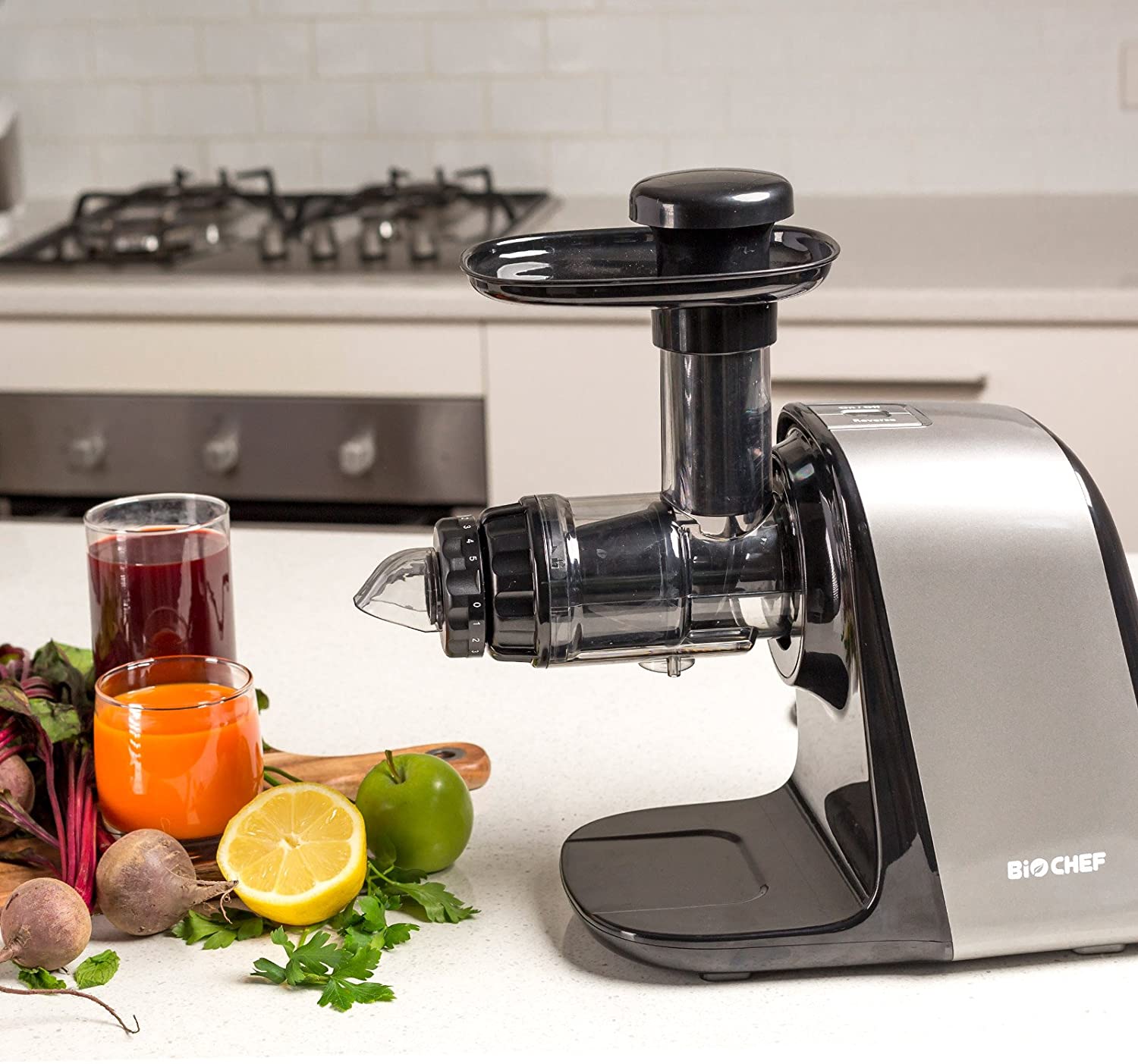

Articles
What Is A Good Juicer To Buy
Modified: October 20, 2024
Looking to buy a good juicer? Check out our expert articles for recommendations and reviews on the best juicers to help you make an informed decision.
(Many of the links in this article redirect to a specific reviewed product. Your purchase of these products through affiliate links helps to generate commission for Storables.com, at no extra cost. Learn more)
Introduction to Juicers
When it comes to maintaining a healthy lifestyle, incorporating fresh fruits and vegetables into your diet is essential. And one of the best ways to do that is by juicing. With the help of a good juicer, you can easily extract the nutritious juices from various fruits and vegetables, ensuring that you get all the vitamins, minerals, and antioxidants that these natural foods have to offer.
Juicers are kitchen appliances designed specifically for extracting juices from fruits and vegetables. They work by grinding, squeezing, or crushing the produce to separate the liquid from the pulp and fiber. This allows you to enjoy a glass of pure and refreshing juice that is packed with nutrients.
However, with so many juicers available in the market, choosing the right one can be overwhelming. There are several factors to consider, such as the type of juicer, its features, and the price range. To help you make an informed decision, let’s delve into these aspects in detail.
First, consider the type of juicer:
1. Centrifugal Juicers: These are the most common and affordable juicers. They work by using a high-speed spinning blade to extract the juice. They are usually fast and easy to use, but they may not be as efficient in juicing leafy greens.
2. Masticating Juicers: Also known as cold press or slow juicers, these juicers use a slow rotating auger to crush the fruits and vegetables, extracting the juice in a gentle and efficient manner. They are known for yielding high-quality juice and are suitable for juicing leafy greens.
3. Citrus Juicers: As the name suggests, these juicers are designed specifically for juicing citrus fruits like oranges, lemons, and grapefruits. They are simple in design and generally affordable.
4. Twin Gear Juicers: These juicers work by using two interlocking gears to crush and extract the juice. They are known for their high juice yield and the ability to juice a wide variety of produce, including hard vegetables like carrots and beets.
5. Wheatgrass Juicers: If you’re a fan of wheatgrass shots, then a wheatgrass juicer is what you need. These juicers are specifically designed to juice wheatgrass efficiently.
Next, let’s explore the features to look for in a juicer:
– Power and Speed: Depending on your juicing needs, consider the power and speed of the juicer. Higher power and variable speed options can make juicing more efficient.
– Juicing Efficiency: Look for a juicer that can extract the maximum amount of juice from your produce while minimizing the pulp. This will ensure you get the most out of your fruits and vegetables.
– Easy Cleaning: Juicing can be a messy process, so opt for a juicer that is easy to clean. Dishwasher-safe parts or juicers with fewer parts to clean can save you time and effort.
– Durability: Investing in a durable juicer is important, especially if you plan to use it frequently. Look for juicers made of high-quality materials that can withstand regular use.
Lastly, consider your budget:
Juicers come in a wide range of prices, from budget-friendly options to high-end models. Set a budget that suits your needs and look for a juicer that offers the best features within that price range.
Now that you have a better understanding of juicers and what to look for, it’s time to explore some top recommendations for good juicers to buy.
Key Takeaways:
- Choose a juicer based on your specific needs and preferences, considering factors such as juicing goals, type of juicer, cleaning and maintenance, noise level, and juice quality to enhance your juicing experience.
- Consider your budget and explore reputable brands to find a juicer that offers the best value for your money. Whether it’s a centrifugal, masticating, twin gear, or wheatgrass juicer, investing in the right juicer can promote a healthier lifestyle and enjoyable juicing experience.
Read more: What Is A Good Wattage For A Juicer
Factors to Consider Before Buying a Juicer
Before making a purchase, it’s important to consider certain factors that will help you find the perfect juicer for your needs. Here are some key factors to keep in mind when buying a juicer:
1. Juicing Goals: Determine your juicing goals and how frequently you plan to use the juicer. If you’re looking to incorporate fresh juices into your daily routine, a high-quality, durable juicer may be worth the investment. If you’re juicing occasionally or for a specific purpose, a more affordable option may be suitable.
2. Type of Juicer: As mentioned earlier, there are different types of juicers available, each with its own advantages and limitations. Consider the type of produce you’ll be juicing most frequently and choose a juicer that is capable of effectively juicing those specific fruits and vegetables. For example, if you plan to juice a lot of leafy greens, a masticating juicer may be the best choice.
3. Cleaning and Maintenance: Juicers can be quite messy, so it’s important to choose one that is easy to clean. Look for models with dishwasher-safe parts or ones that require minimal disassembly for cleaning. A juicer that is easy to maintain will make the juicing process more convenient and enjoyable.
4. Noise Level: Consider the noise level of the juicer, especially if you plan to use it early in the morning or in a shared living space. Centrifugal juicers typically produce more noise due to their high-speed operation, while masticating juicers tend to be quieter.
5. Juice Quality: Pay attention to the quality of juice that the juicer produces. Some juicers, particularly masticating juicers, are known for preserving the nutrients, enzymes, and flavors of the fruits and vegetables, resulting in a higher quality juice. If the nutrient content of the juice is a priority for you, opt for a juicer that produces a nutrient-rich juice.
6. Juicer Size and Design: Consider the size and design of the juicer, especially if you have limited countertop space. Some juicers are compact and vertically designed, making them easier to store. Larger juicers with more features may be bulkier and require more storage space.
7. Warranty: Check the warranty offered by the manufacturer. A longer warranty period indicates that the manufacturer stands behind the quality and durability of their juicer. It’s always good to have peace of mind knowing that you are covered in case of any issues.
8. Price: Set a budget for your juicer purchase. Juicers can vary greatly in price, and it’s important to find a balance between cost and quality. Determine how much you are willing to spend and choose a juicer that offers the best value for your money.
By considering these factors, you can narrow down your options and find a juicer that fits your requirements and lifestyle. Ultimately, choosing the right juicer will ensure that you can enjoy fresh and nutritious juices hassle-free for years to come.
Types of Juicers
When it comes to juicing, there are several different types of juicers available in the market. Each type is designed to cater to specific juicing needs and preferences. Understanding the different types of juicers will help you make an informed decision when purchasing one. Let’s explore the most common types of juicers:
-
Centrifugal Juicers: Centrifugal juicers are the most common and widely used type of juicers. They work by using a high-speed spinning blade to shred the fruits and vegetables and extract the juice. The centrifugal force separates the juice from the pulp, which is collected in separate compartments. These juicers are generally fast and efficient, making them ideal for those who don’t have much time for preparation or cleanup. However, they may not be as effective in juicing leafy greens, and the high-speed operation can cause some oxidation, reducing the shelf life of the juice.
-
Masticating Juicers: Masticating juicers, also known as cold press or slow juicers, operate at a lower speed compared to centrifugal juicers. They use a single or dual auger to crush the fruits and vegetables, extracting the juice in a slow and controlled manner. Masticating juicers are known for their efficiency in juicing leafy greens and producing higher quality juice. They work at a slower speed, which minimizes oxidation and retains more nutrients, enzymes, and flavors. These juicers are generally more expensive but offer superior juicing results.
-
Citrus Juicers: Citrus juicers are designed specifically for juicing citrus fruits like oranges, lemons, and grapefruits. These juicers typically have a reamer or cone-shaped attachment that extracts the juice when pressed against the fruit. They are simple in design, easy to use, and generally more affordable. If you primarily plan to juice citrus fruits, a citrus juicer is a practical and budget-friendly option.
-
Twin Gear Juicers: Twin gear juicers are high-end juicers that work by using two interlocking gears to crush the fruits and vegetables and extract the juice. They operate at a slow speed, similar to masticating juicers, resulting in minimal oxidation and maximum nutrient retention. These juicers are suitable for juicing a wide variety of produce, including hard vegetables like carrots and beets. Twin gear juicers are known for their high juice yield and superior juice quality but come with a higher price tag.
-
Wheatgrass Juicers: Wheatgrass juicers are specialized juicers designed specifically for extracting juice from wheatgrass. Wheatgrass is a nutrient-rich superfood, and juicing it requires a juicer that can efficiently extract its juice. These juicers are typically manual or electric and come with specific mechanisms for processing wheatgrass. If you plan to juice wheatgrass regularly, investing in a wheatgrass juicer is recommended for optimal results.
Each type of juicer has its own unique advantages and limitations. Consider your juicing needs, preferences, and budget before deciding on the type of juicer that suits you best. Whether you’re looking for speed, efficiency, versatility, or superior juice quality, there is a juicer available to meet your requirements.
Centrifugal Juicers
Centrifugal juicers are one of the most common and popular types of juicers available in the market. They are known for their speed and convenience, making them a favorite choice for many home juicers. Let’s take a closer look at how centrifugal juicers work and their key features:
1. Operation: Centrifugal juicers work by using a high-speed spinning blade to shred the fruits and vegetables. The produce is fed into a chute, where it comes into contact with the rotating blade. The blade cuts and grinds the produce, releasing the juice. The centrifugal force generated by the spinning motion separates the juice from the pulp, allowing the juice to flow into a separate container while the pulp is collected in a different compartment.
2. Speed: One of the major advantages of centrifugal juicers is their speed. They operate at high RPM (revolutions per minute), allowing for quick and efficient juice extraction. This makes them a great option for individuals who are short on time and want their juice ready in a matter of minutes.
3. Ease of Use: Centrifugal juicers are generally easy to use, with a straightforward and intuitive design. They typically have a wide chute, which means less prep work is required since you can feed whole or large chunks of produce into the juicer. The high-speed operation of centrifugal juicers also means that the juicing process is quick, making them a convenient choice for daily use.
4. Affordable: Centrifugal juicers are generally more affordable compared to other types of juicers. This makes them a popular choice for beginners or individuals with a limited budget. They offer a cost-effective way to enjoy fresh juices at home without breaking the bank.
5. Limitations: While centrifugal juicers have their advantages, they also have a few limitations. They are not as effective in juicing leafy greens, such as spinach or kale, as they may not extract as much juice from these types of produce. Additionally, the high-speed operation can introduce some oxidation into the juice, which may result in a shorter shelf life compared to juices extracted using slower juicing methods.
6. Maintenance: Centrifugal juicers are relatively easy to clean. Most models have dishwasher-safe parts, making cleanup quick and hassle-free. However, keep in mind that some parts, such as the mesh filter or blade, may require additional scrubbing to remove any pulp or fiber buildup.
7. Noise Level: Due to their high-speed operation, centrifugal juicers tend to be noisier compared to other types of juicers. The loud noise generated by the spinning blade may not be ideal for those who prefer a quieter juicing experience, especially in shared living spaces or early mornings.
Centrifugal juicers are a popular choice for individuals who value speed, convenience, and affordability. They are great for extracting juice from a wide range of fruits and some vegetables. However, if you prioritize juicing leafy greens or want to maximize nutrient retention and juice quality, you may want to consider other types of juicers such as masticating or cold press juicers.
Masticating Juicers
Masticating juicers, also known as slow juicers or cold press juicers, are a popular choice for health-conscious individuals who prioritize nutrient retention and juice quality. Unlike centrifugal juicers, which operate at high speeds, masticating juicers work at a slower speed, resulting in a more thorough and efficient juicing process. Let’s explore the key features and benefits of masticating juicers:
1. Slow and Gentle Operation: Masticating juicers operate at a slow speed, typically ranging from 40 to 120 RPM (revolutions per minute). The slow rotation of a single or dual auger gently crushes and grinds the fruits and vegetables to extract the juice. This slow and gentle process helps preserve the nutrients, enzymes, and flavors of the produce, resulting in juice that is rich in vitamins, minerals, and antioxidants.
2. Juice Quality: Masticating juicers are known for producing high-quality juice. The slow speed and gentle extraction process minimize heat and oxidation, which can degrade the nutritional content and flavor of the juice. As a result, the juice produced by masticating juicers is often richer in color, taste, and nutrients compared to juice extracted using other methods.
3. Efficient Juicing of Leafy Greens: One of the advantages of masticating juicers is their ability to effectively juice leafy greens. The slow and powerful crushing action of the auger ensures that even delicate and fibrous greens like spinach, kale, and wheatgrass are thoroughly juiced, extracting the maximum amount of juice and nutrients.
4. Versatility: Masticating juicers often offer more versatility compared to centrifugal juicers. In addition to extracting juice from fruits and vegetables, some masticating juicers can perform other functions such as making nut milk, sorbets, nut butter, baby food, and even pasta. This versatility allows you to explore a wide range of recipes and experiment with different ingredients.
5. Longer Shelf Life: Due to the slower extraction process and minimal oxidation, juice produced by masticating juicers has a longer shelf life compared to juice from centrifugal juicers. The reduced oxidation helps preserve the freshness, flavor, and nutrients, allowing you to store the juice for longer periods without significant degradation.
6. Quiet Operation: Masticating juicers operate at a slower speed, resulting in quieter operation compared to centrifugal juicers. This is especially beneficial if you live in a noise-sensitive environment or prefer a peaceful juicing experience.
7. Cleaning and Maintenance: Masticating juicers typically have more parts and require slightly more effort to clean compared to centrifugal juicers. However, many models come with dishwasher-safe components, making the cleaning process more convenient. It is important to properly clean and maintain the juicer to ensure optimal performance and longevity.
While masticating juicers may come at a higher price point compared to centrifugal juicers, their superior juice quality, nutrient retention, and versatility make them a worthwhile investment for individuals who are serious about juicing and want to maximize the health benefits of their fresh produce. Whether you’re juicing leafy greens, fruits, or a combination of both, a masticating juicer can provide you with nutrient-rich and flavorful juices to support your healthy lifestyle.
Read more: Where To Buy A Juicer
Citrus Juicers
Citrus juicers are specifically designed for the effortless extraction of juice from citrus fruits such as oranges, lemons, grapefruits, and limes. These juicers are a practical and convenient choice for those who enjoy the refreshing taste and nutritional benefits of citrus juices. Let’s delve into the key features and advantages of citrus juicers:
1. Simple Operation: Citrus juicers have a straightforward design, making them easy to use, even for beginners. They typically consist of a reamer or cone-shaped attachment that is pressed against the fruit to extract the juice. Manual citrus juicers require manual pressure to extract the juice, while electric citrus juicers operate with the press of a button.
2. Efficient Juice Extraction: Citrus juicers are specifically engineered to squeeze out the maximum amount of juice from citrus fruits. The reamer or cone effectively extracts the juice while filtering out the seeds and pulp, leaving you with a smooth and pure citrus juice.
3. Versatility: While the main function of citrus juicers is juicing citrus fruits, some models also come with attachments or cones of different sizes to accommodate various sizes of fruits. This versatility allows you to extract juice from different types of citrus fruits, ranging from small limes to large grapefruits.
4. Time-Saving: Citrus juicers are designed to efficiently extract juice from citrus fruits within seconds. The process is quick and straightforward, eliminating the need for extensive preparation or chopping. This makes citrus juicers a time-saving option for those who want to enjoy a glass of freshly squeezed citrus juice without any hassle.
5. Cost-Effective: Citrus juicers are generally more affordable compared to other types of juicers. They provide a cost-effective solution specifically tailored to juicing citrus fruits. If you primarily enjoy citrus juices and don’t plan to juice other types of produce, a citrus juicer offers excellent value for money.
6. Easy to Clean: Citrus juicers are known for their easy cleaning process. Most models have removable parts that are dishwasher-safe, making cleanup a breeze. The simple design of citrus juicers minimizes the chances of pulp or seeds getting stuck, further simplifying the cleaning process.
7. Space-Saving: Citrus juicers are typically compact and take up minimal counter space. Their small size and streamlined design make them ideal for those with limited kitchen space or for individuals who prefer appliances that do not clutter the countertop.
8. Healthy and Refreshing Juices: Citrus juices are an excellent source of vitamin C, antioxidants, and other beneficial nutrients. By using a citrus juicer, you can enjoy the natural goodness of freshly squeezed citrus juice that is packed with essential vitamins and minerals. It’s a great way to kickstart your day or to quench your thirst with a revitalizing and flavorful drink.
Whether you’re making a pitcher of fresh orange juice for breakfast or adding a splash of lemon juice to your favorite recipes, a citrus juicer provides a convenient and efficient way to extract the refreshing juices from citrus fruits. With their simplicity, cost-effectiveness, and easy maintenance, citrus juicers are a valuable addition to any kitchen.
When looking for a good juicer to buy, consider a masticating juicer for better nutrient retention and less oxidation of the juice. These juicers are also quieter and more efficient at juicing leafy greens.
Twin Gear Juicers
Twin gear juicers, also known as triturating juicers, are high-end juicers that are designed to extract juice from a wide variety of fruits and vegetables. These juicers employ two interlocking gears to crush and extract juice, making them a preferred choice for individuals seeking maximum juice yield and superior nutrient retention. Let’s explore the key features and benefits of twin gear juicers:
1. Dual Gear System: Twin gear juicers feature two gears that work in tandem to crush and extract juice from the produce. The gears are typically made of stainless steel and often have special ridges or teeth that aid in the extraction process. The dual gear system ensures thorough juicing, resulting in higher juice yield compared to other types of juicers.
2. Versatility: Twin gear juicers can handle a wide range of fruits and vegetables. From soft fruits like berries to dense vegetables like carrots or beets, twin gear juicers are designed to effectively juice a variety of produce. Some models even have attachments for making nut butter, baby food, sorbets, and more, making them a versatile addition to your kitchen.
3. Maximized Nutrient Retention: The slow and gentle crushing action of twin gear juicers minimizes heat and oxidation during the juicing process. This helps preserve the vitamins, minerals, enzymes, and other delicate nutrients present in the produce. The result is juice that is vibrant in color and rich in nutritional content, ensuring you get the maximum health benefits from your fresh juices.
4. High Juice Yield: Twin gear juicers are known for their exceptional juice extraction capabilities. The gears effectively crush and extract juice from the produce, leaving behind minimal pulp. This high juice yield allows you to get the most out of your fruits and vegetables, maximizing your juicing investment.
5. Juice Quality: The slow and precise extraction process of twin gear juicers ensures that the juice produced is of premium quality. The low speed minimizes the introduction of air and heat, which can compromise the taste, color, and nutrients of the juice. By using twin gear juicers, you can enjoy juice that is smooth, flavorful, and nutrient-dense.
6. Durability: Twin gear juicers are built to last. The gears are usually made of strong, durable materials like stainless steel, ensuring their longevity. While twin gear juicers may have a higher initial cost, their durability and performance make them a worthwhile investment for individuals who are serious about juicing.
7. Easy to Clean: Although twin gear juicers have multiple parts, they are relatively easy to clean. Most models come with specialized cleaning brushes and removable components that can be easily rinsed or washed. Proper cleaning and maintenance ensure optimal performance and extend the lifespan of your twin gear juicer.
With their outstanding juice yield, superior nutrient retention, and versatile capabilities, twin gear juicers are the ultimate choice for serious juicers who desire the best possible quality from their fresh produce. If you’re willing to invest in a high-performance juicer that delivers exceptional results, a twin gear juicer is a fantastic option to consider.
Wheatgrass Juicers
Wheatgrass juicers are specialized juicers specifically designed for extracting juice from wheatgrass, a nutrient-dense green plant that offers numerous health benefits. Due to the unique properties of wheatgrass, these juicers are tailored to efficiently extract the juice from this fibrous and delicate plant. Let’s explore the key features and benefits of wheatgrass juicers:
1. Efficient Extraction: Wheatgrass juicers are designed to extract the maximum amount of juice from wheatgrass. They utilize a slow and powerful mechanism to crush and squeeze every drop of juice from the fibrous blades. This ensures that you get the most out of your wheatgrass, making it a cost-effective and efficient option.
2. Gentle Operation: Wheatgrass juicers operate at a slow speed, often around 60 to 80 RPM (revolutions per minute). This slow and gentle juicing process preserves the delicate enzymes, vitamins, and minerals present in wheatgrass. By minimizing heat and oxidation, wheatgrass juicers ensure that the juice retains its nutritional value and freshness.
3. Optimal Nutrient Retention: Wheatgrass is known for its abundance of vitamins, minerals, chlorophyll, and antioxidants. Wheatgrass juicers are specifically designed to preserve these nutrients during the juicing process. The slow extraction method ensures minimal nutrient degradation, allowing you to enjoy the full benefits of wheatgrass in your juice.
4. Compact and Space-Saving: Wheatgrass juicers are typically small and compact, making them ideal for kitchens with limited countertop space. Their sleek and streamlined design allows you to store them easily when not in use, maximizing the use of your kitchen space.
5. Manual or Electric Options: Wheatgrass juicers are available in both manual and electric models. Manual wheatgrass juicers require you to manually turn a crank or handle, allowing for a more hands-on juicing experience. Electric wheatgrass juicers, on the other hand, offer the convenience of automatic operation, making the juicing process faster and more efficient.
6. Sturdy Construction: Wheatgrass juicers are built with durable materials to withstand the juicing process and the fibrous nature of wheatgrass. Their construction ensures longevity and durability, allowing you to enjoy the benefits of juicing wheatgrass for years to come.
7. Easy to Clean: Cleaning wheatgrass juicers is relatively simple. Most models have removable parts that can be easily rinsed or washed. Additionally, the absence of complex mechanisms and fewer parts compared to other juicers makes the cleaning process quicker and more convenient.
8. Pure and Fresh Juice: By using a wheatgrass juicer, you can enjoy the pure, fresh taste of wheatgrass juice. The extraction process ensures minimal pulp and fiber in the juice, resulting in a smooth and refreshing drink.
Wheatgrass juicers are a must-have for individuals who regularly consume wheatgrass and want to maximize its health benefits. Whether you prefer a manual or electric model, these specialized juicers efficiently extract the nutrients from wheatgrass and provide you with a pure and invigorating juice that supports your well-being.
Juicer Features to Look ForWhen it comes to choosing a juicer, there are several key features to consider that will ensure you find a juicer that meets your specific needs and preferences. These features can greatly impact the performance, convenience, and overall satisfaction with your juicer. Here are some important juicer features to look for:
1. Power and Speed: The power and speed of a juicer can significantly influence its efficiency. Higher-powered juicers and those with variable speed options can handle tougher produce and extract juice more effectively. Consider the types of fruits and vegetables you plan to juice and choose a juicer with sufficient power and speed to handle your desired ingredients.
2. Juicing Efficiency: Look for a juicer that offers high juicing efficiency. This means the juicer should be able to extract the maximum amount of juice from your produce while producing minimal waste. A juicer with optimal juicing efficiency ensures that you get the most value out of your fruits and vegetables and minimizes juice loss.
3. Pulp Control: Consider whether you prefer pulp-free or pulpy juice. Some juicers come with adjustable pulp control settings, allowing you to customize the amount of pulp in your juice. This feature caters to individual preferences and offers flexibility in tailoring your juice consistency to your liking.
4. Juicer Size and Design: The size and design of the juicer are important considerations, especially if you have limited kitchen space. A compact and space-saving juicer can be more convenient to store and won’t take up excessive counter space. Additionally, consider the juicer’s design in terms of ease of use and accessibility to the various parts for assembly, disassembly, and cleaning.
5. Ease of Cleaning: Juicing can be a messy process, so opting for a juicer that is easy to clean is essential. Look for models with dishwasher-safe parts or juicers with fewer components that require cleaning. Juicers with removable parts that can be easily rinsed or washed will simplify the cleaning process and save you time and effort.
6. Durability: Investing in a durable juicer ensures that it will withstand regular use and last over time. Look for juicers made of high-quality materials that can endure the pressure and strain of the juicing process. It’s worth selecting a reliable and robust juicer that can serve you for years to come.
7. Noise Level: Juicers can produce varying levels of noise during operation. If noise is a concern for you, consider juicers with quieter motors or those equipped with noise reduction features. Keep in mind that masticating juicers, due to their slow-speed operation, generally tend to be quieter compared to centrifugal juicers.
8. Juicer Safety Features: Safety should be a priority when selecting a juicer. Look for features such as safety locks or sensors that ensure the juicer won’t operate unless all the parts are correctly assembled. Overload protection and heat sensors are additional safety features to consider, as they can prevent overheating and potential damage to the juicer.
9. Warranty: Checking the warranty offered by the manufacturer is important. A longer warranty period indicates that the manufacturer has confidence in the quality and durability of their juicer. It provides peace of mind knowing that you are covered in case of any defects or malfunctions.
10. Price: Set a budget for your juicer purchase. Juicers come in a wide range of prices, from budget-friendly options to high-end models. Determine how much you are willing to spend and choose a juicer that offers the best value for your money, taking into consideration your specific juicing needs.
By considering these features, you can find a juicer that aligns with your preferences and requirements. Whether you prioritize power and efficiency, ease of cleaning, durability, or safety features, selecting a juicer with the right combination of features will enhance your juicing experience and help you create delicious and nutritious juices with ease.
Read more: What Is A Good High Chair To Buy
Juicer Pricing
When it comes to purchasing a juicer, pricing is an important factor to consider. Juicers vary in price, ranging from budget-friendly options to higher-end models with advanced features and functionalities. Understanding juicer pricing will help you set a budget and choose a juicer that fits your needs and preferences. Here are some points to consider:
1. Budget-friendly Juicers: Budget-friendly juicers are typically more affordable and offer basic features. These juicers often belong to the centrifugal juicer category, which tends to have a lower price range. While they may not offer all the bells and whistles of higher-end models, budget-friendly juicers can still provide efficient juicing for those who are new to juicing or have a limited budget.
2. Mid-range Juicers: Mid-range juicers offer a balance between price and features. These juicers may include more advanced functionalities, such as variable speed settings, adjustable pulp control, or larger feeding chutes. They may belong to either the centrifugal or masticating juicer category. Mid-range juicers are suitable for individuals who want a step up in quality and performance without breaking the bank.
3. High-end Juicers: High-end juicers are typically more expensive and come with advanced features and superior juice quality. Masticating juicers, twin gear juicers, or multipurpose juicers often fall into this category. These juicers are designed for serious juicers who want top-notch performance, maximum juice yield, and exceptional nutrient retention. High-end juicers may offer additional functionalities, such as the ability to make nut butter or pasta. These juicers come at a higher price, but their durability, versatility, and superior juice quality make them worthwhile investments for those committed to juicing.
4. Brand Reputation: Brand reputation can also affect juicer pricing. Established and recognized brands often have a higher price point due to their reputation for quality, durability, and customer support. While brand reputation should be considered, it’s essential to also evaluate the specific features, performance, and value for money that a juicer offers.
5. Juicer Type: The type of juicer can also impact pricing. Centrifugal juicers are generally more affordable compared to masticating juicers, twin gear juicers, or multipurpose juicers. The additional features and advanced technology in these higher-end juicers contribute to their higher price tags. However, keep in mind that the type of juicer you choose should align with your juicing needs and goals.
6. Warranty: The warranty offered by the manufacturer can reflect the quality and durability of the juicer. Juicers with longer warranty periods often have a higher price, as the manufacturer provides extended coverage for any potential defects or malfunctions. A longer warranty can provide peace of mind and added value to your juicer purchase.
When determining your juicer budget, consider how frequently you plan to juice, the types of fruits and vegetables you intend to juice, and your desired juice quality. A juicer is an investment in your health and well-being, so it’s important to find a balance between price and the features that matter most to you.
Remember, while a higher-priced juicer may offer more advanced features and durability, it’s not always necessary for everyone. Assess your juicing needs and priorities, do thorough research, and choose a juicer that offers the best value within your budget. With the right juicer, you can enjoy fresh and healthy juices for years to come.
Top Recommendations for Good Juicers to Buy
When it comes to choosing the best juicer for your needs, there are several top-rated options available in the market. These juicers offer excellent performance, durability, and value for money. Here are some top recommendations for good juicers to buy:
1. Breville JE98XL Juice Fountain Plus: This centrifugal juicer from Breville is a popular choice for its powerful performance and efficiency. It features a wide feed chute, allowing you to juice whole fruits and vegetables with ease. The two-speed control ensures flexibility for different produce, while the large pulp container minimizes interruptions during juicing. The Breville JE98XL is relatively affordable, making it a great option for beginners or those on a budget.
2. Omega NC800HDS Juicer: The Omega NC800HDS is a highly regarded masticating juicer known for its versatility and juice quality. It operates at a slow speed, preserving nutrients and minimizing oxidation. With its adjustable end cap and various nozzles, this juicer can handle not only fruits and vegetables but also wheatgrass and leafy greens. The Omega NC800HDS is a durable and reliable investment for those serious about juicing.
3. Tribest GSE-5050 Greenstar Elite: The Tribest GSE-5050 is a twin gear juicer that offers top-tier juice quality and exceptional extraction efficiency. It features a unique twin-gear system that mimics the human mastication process, resulting in higher nutrient retention and juice yield. The Tribest GSE-5050 is also capable of performing other food processing tasks, such as making nut butter and sorbets. While it comes at a higher price point, its versatility and superior performance earn it a spot among the best juicers available.
4. Hurom HP Slow Juicer: The Hurom HP Slow Juicer is a compact and sleek masticating juicer known for its quiet operation and excellent juice quality. It utilizes Hurom’s patented Slow Squeeze Technology, extracting juice with minimal heat and oxidation. The Hurom HP Slow Juicer is easy to clean and yields high juice quantities from a wide variety of produce, including leafy greens. Its compact size makes it suitable for individuals with limited countertop space.
5. Manual Wheatgrass Juicer – Lexen GP27: For those specifically interested in juicing wheatgrass, the Lexen GP27 is a dependable manual juicer option. This compact and affordable juicer is designed to extract juice from wheatgrass efficiently. It operates using a hand crank and offers great juice yield while preserving the vital nutrients in the wheatgrass. The Lexen GP27 is easy to clean and a great choice for wheatgrass enthusiasts.
These juicers have been highly praised by users and offer a range of features and prices to suit different juicing needs. Consider your specific requirements, such as the types of produce you’ll be juicing and your desired juice quality, to choose the best juicer that fits your lifestyle and budget. With any of these top recommendations, you can enjoy fresh and nutrient-rich juices in the comfort of your own home.
Conclusion
Choosing the right juicer is essential to enhance your juicing experience and enjoy the numerous health benefits of fresh fruit and vegetable juices. Whether you’re a seasoned juicer or a beginner, understanding the different types of juicers, key features to look for, and their respective pricing can help you make an informed decision.
Centrifugal juicers, such as the Breville JE98XL Juice Fountain Plus, offer speed and convenience at an affordable price. Masticating juicers like the Omega NC800HDS and twin gear juicers like the Tribest GSE-5050 Greenstar Elite focus on higher juice yield and nutrient retention, making them suitable for those seeking maximum health benefits. For wheatgrass enthusiasts, the Lexen GP27 offers an efficient and cost-effective solution.
When selecting a juicer, consider factors such as power and speed, juicing efficiency, ease of cleaning, durability, noise level, and warranty to find the perfect juicer for your needs. Remember to set a budget that aligns with your juicing goals and explore reputable brands that offer quality and reliability.
Investing in a good juicer allows you to incorporate fresh and nutritious juices into your daily routine, promoting a healthier lifestyle. Whether you’re enjoying a glass of vibrant green wheatgrass juice or indulging in a refreshing citrus blend, the right juicer will provide you with a convenient, efficient, and enjoyable juicing experience.
So go ahead, explore the world of juicing, and choose the juicer that suits your needs. With your new juicer by your side, you can unlock a world of delicious and nutrient-packed juices, paving the way to a healthier and more vibrant life.
Frequently Asked Questions about What Is A Good Juicer To Buy
Was this page helpful?
At Storables.com, we guarantee accurate and reliable information. Our content, validated by Expert Board Contributors, is crafted following stringent Editorial Policies. We're committed to providing you with well-researched, expert-backed insights for all your informational needs.

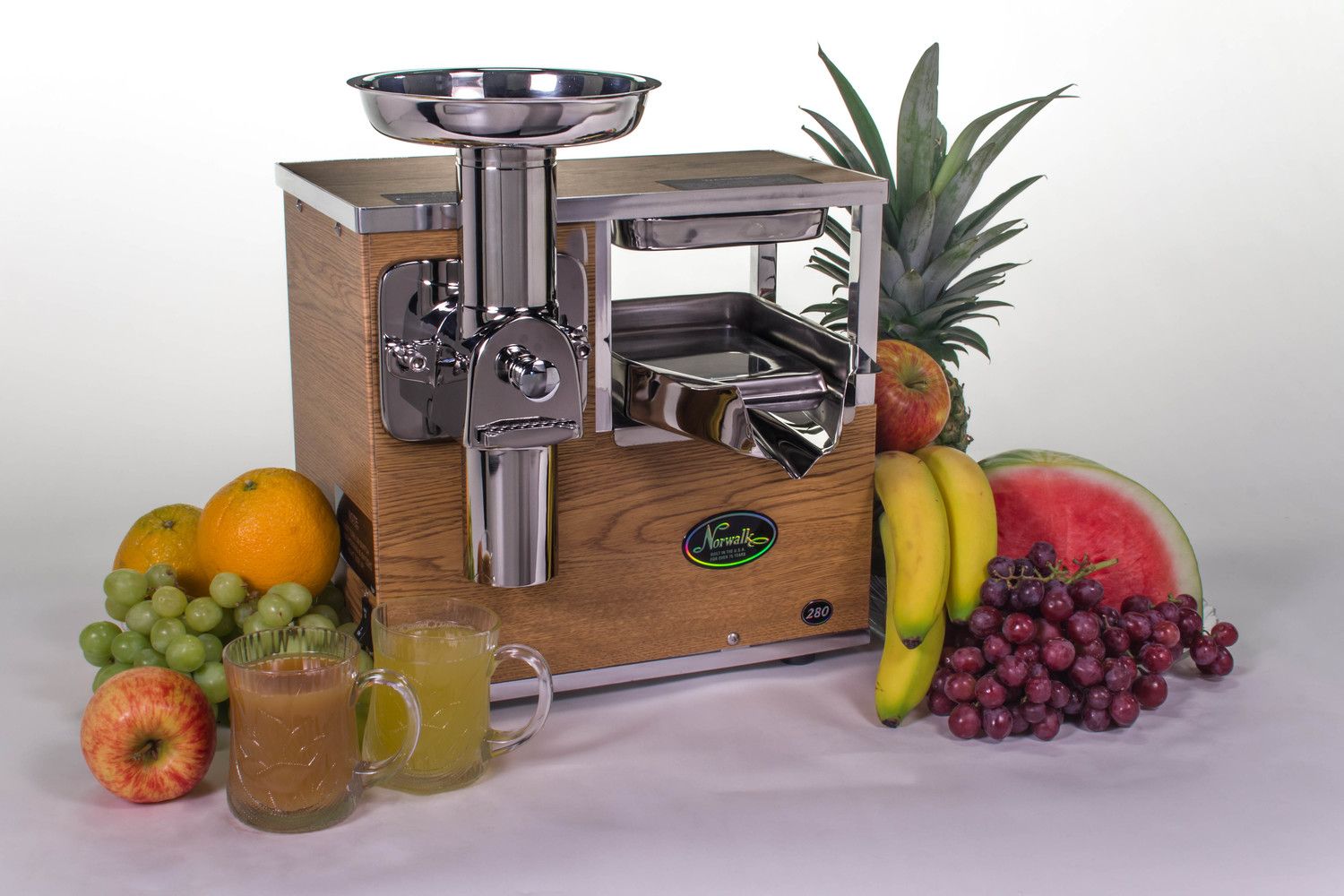
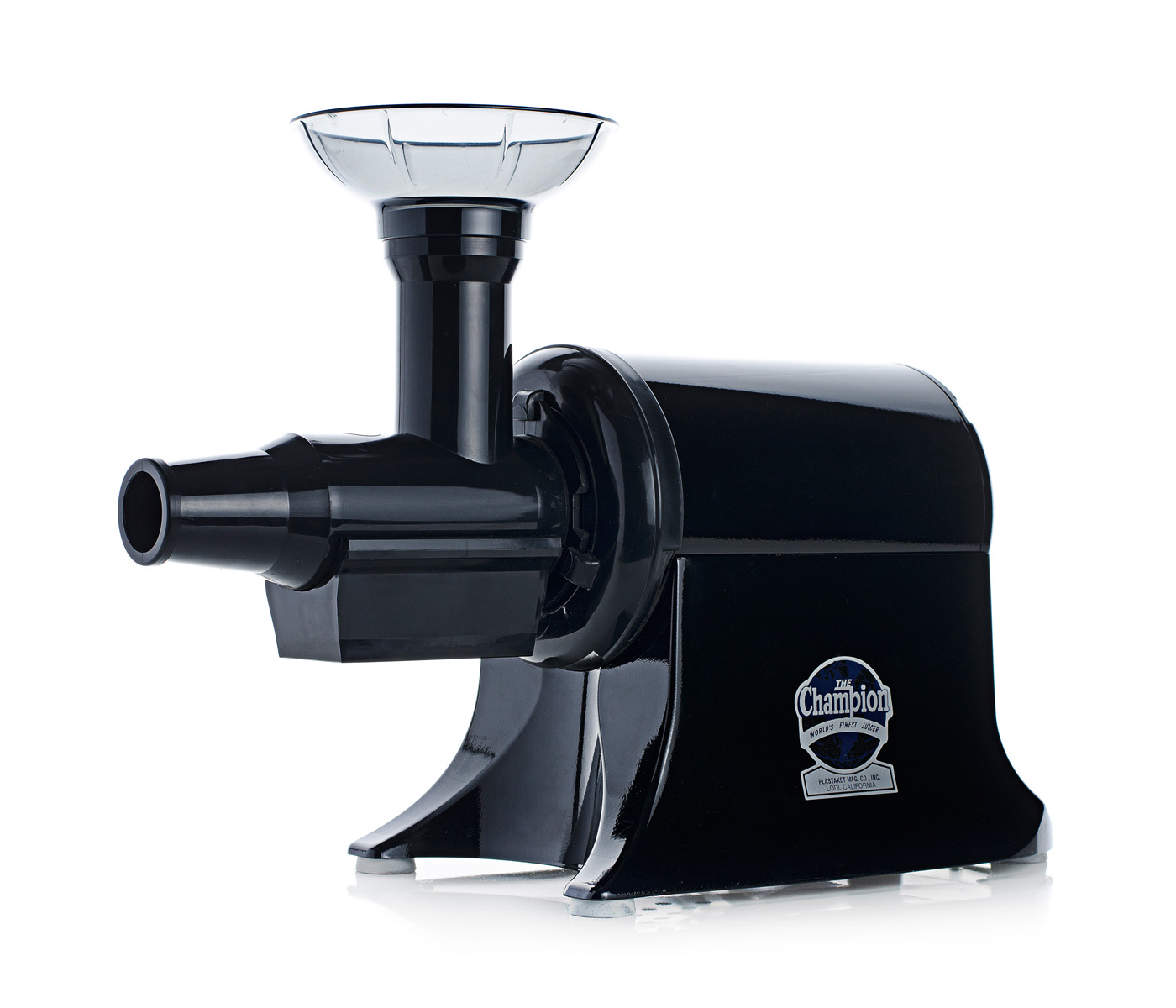
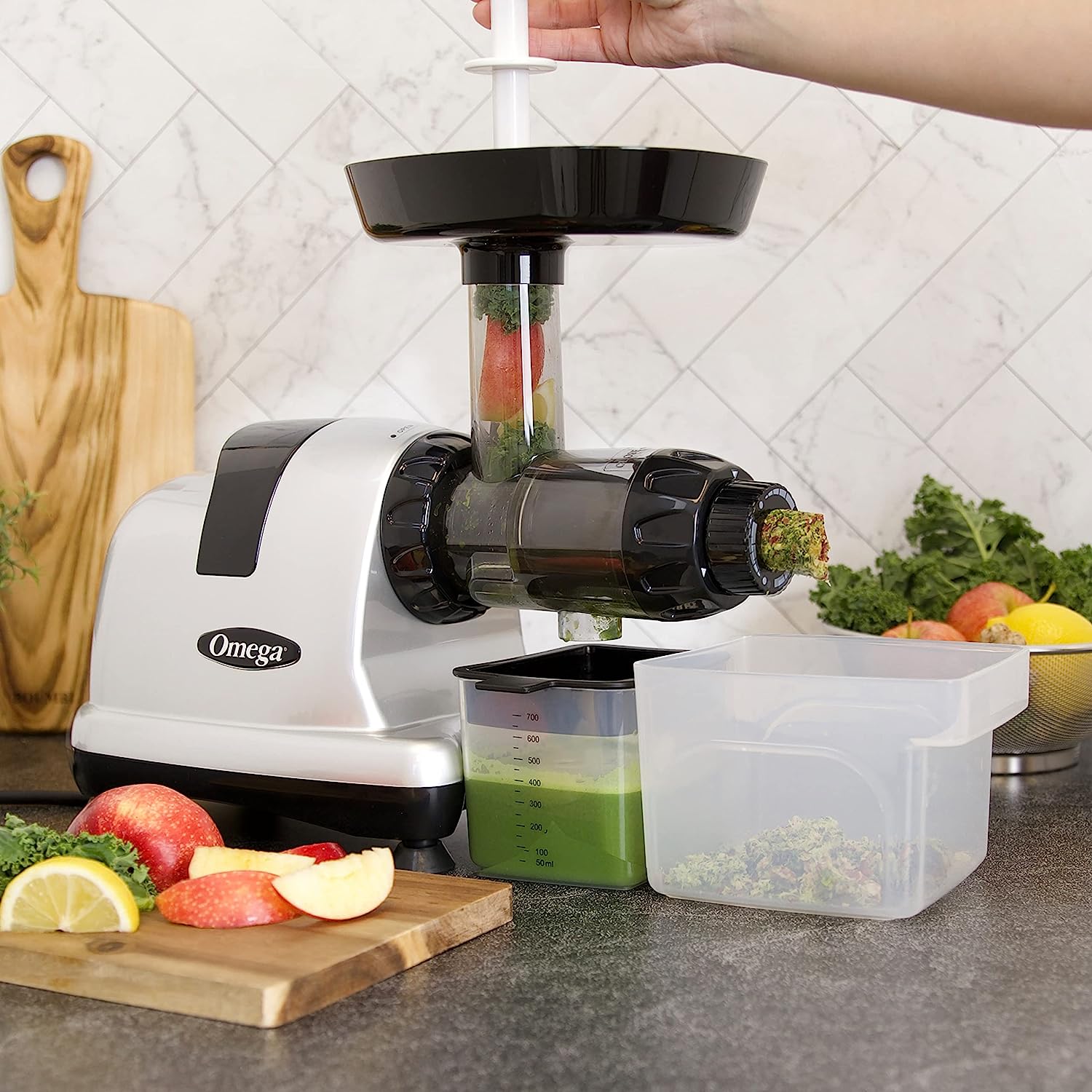
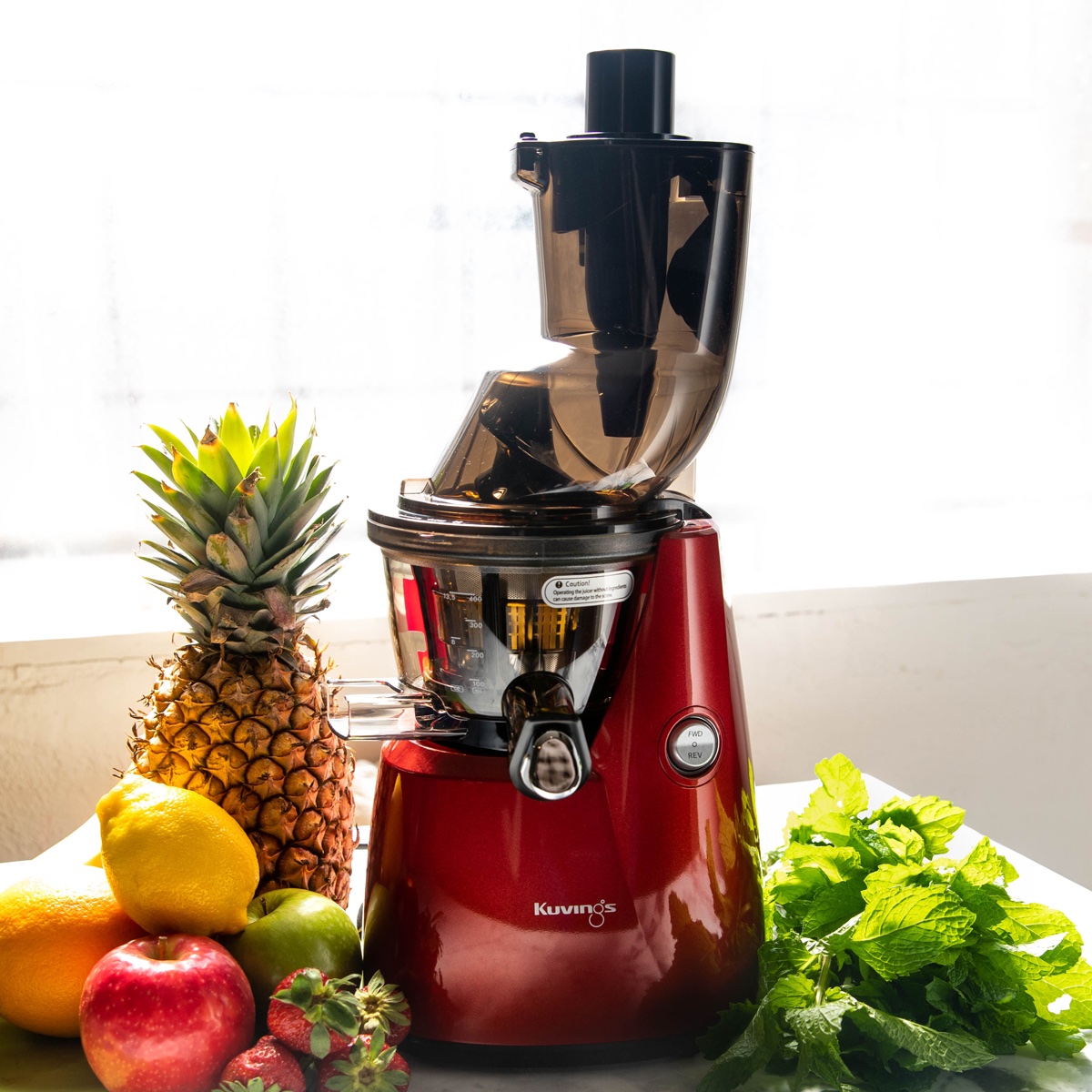
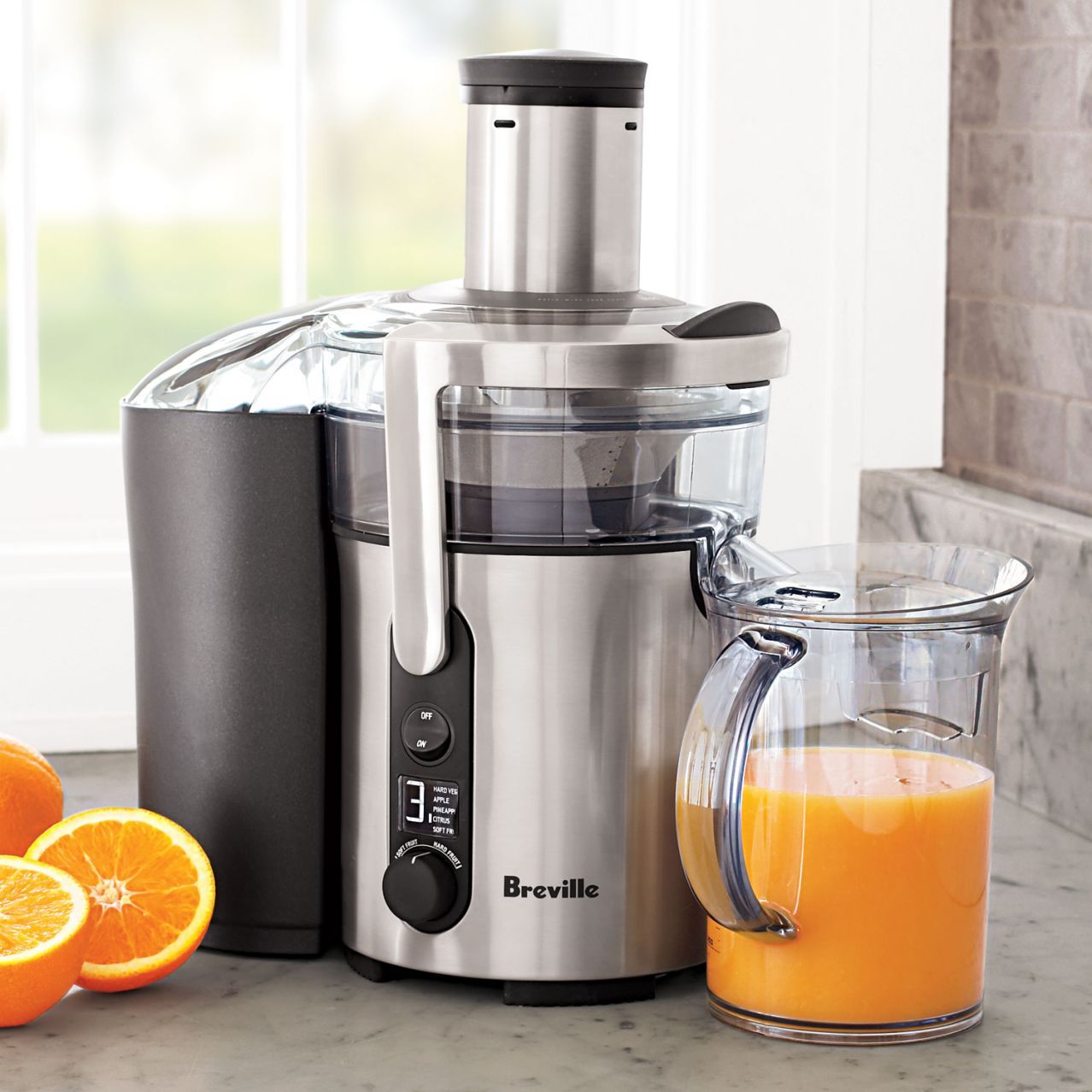


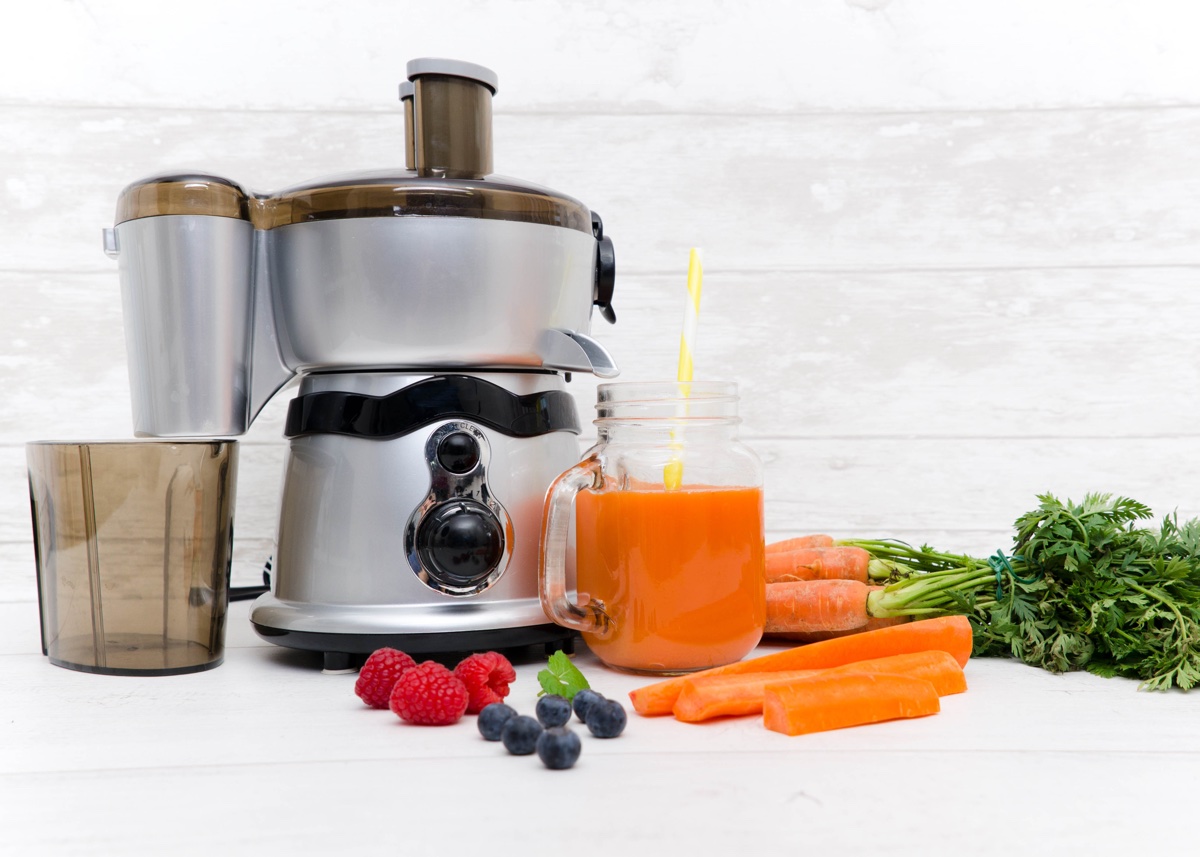
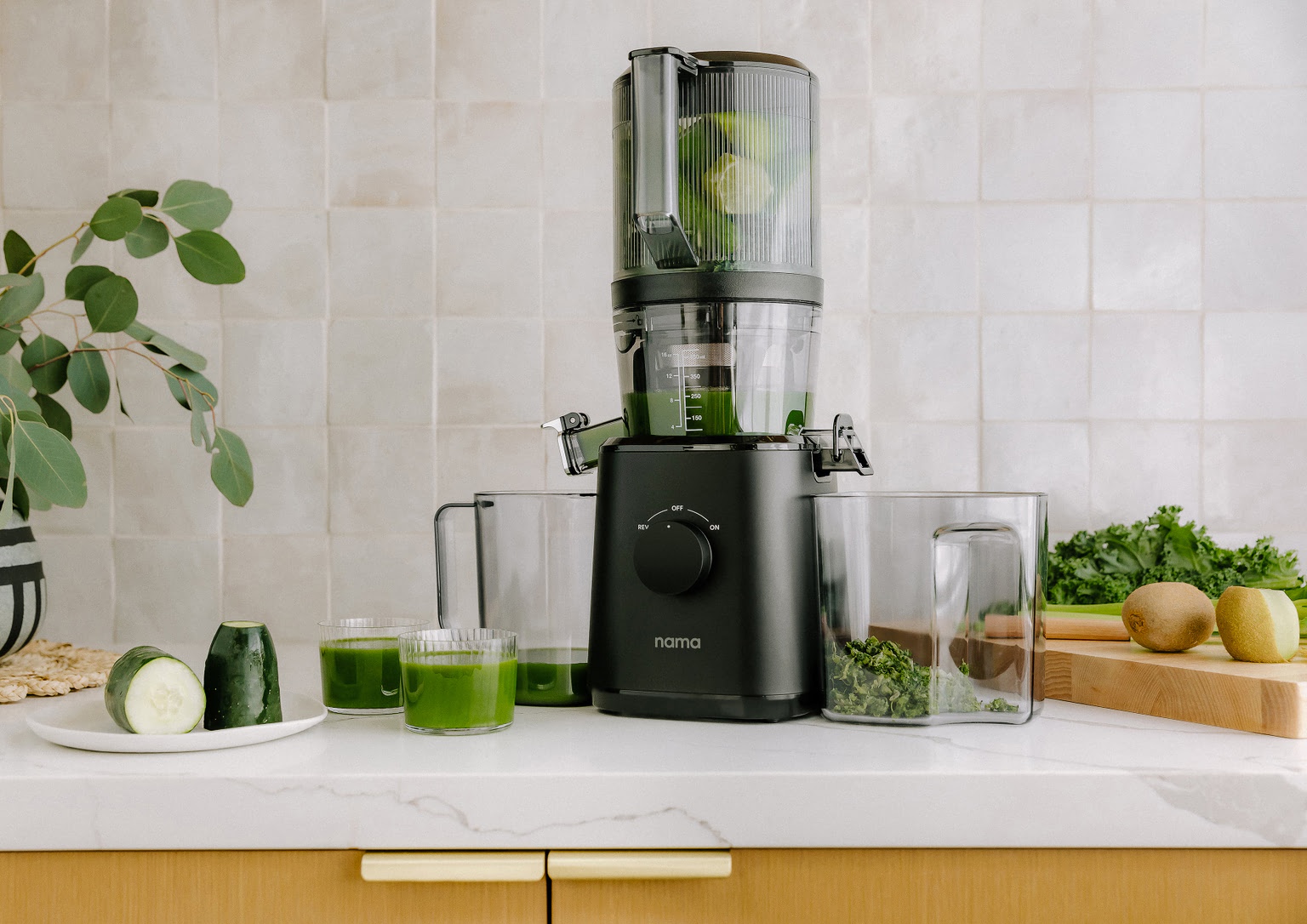

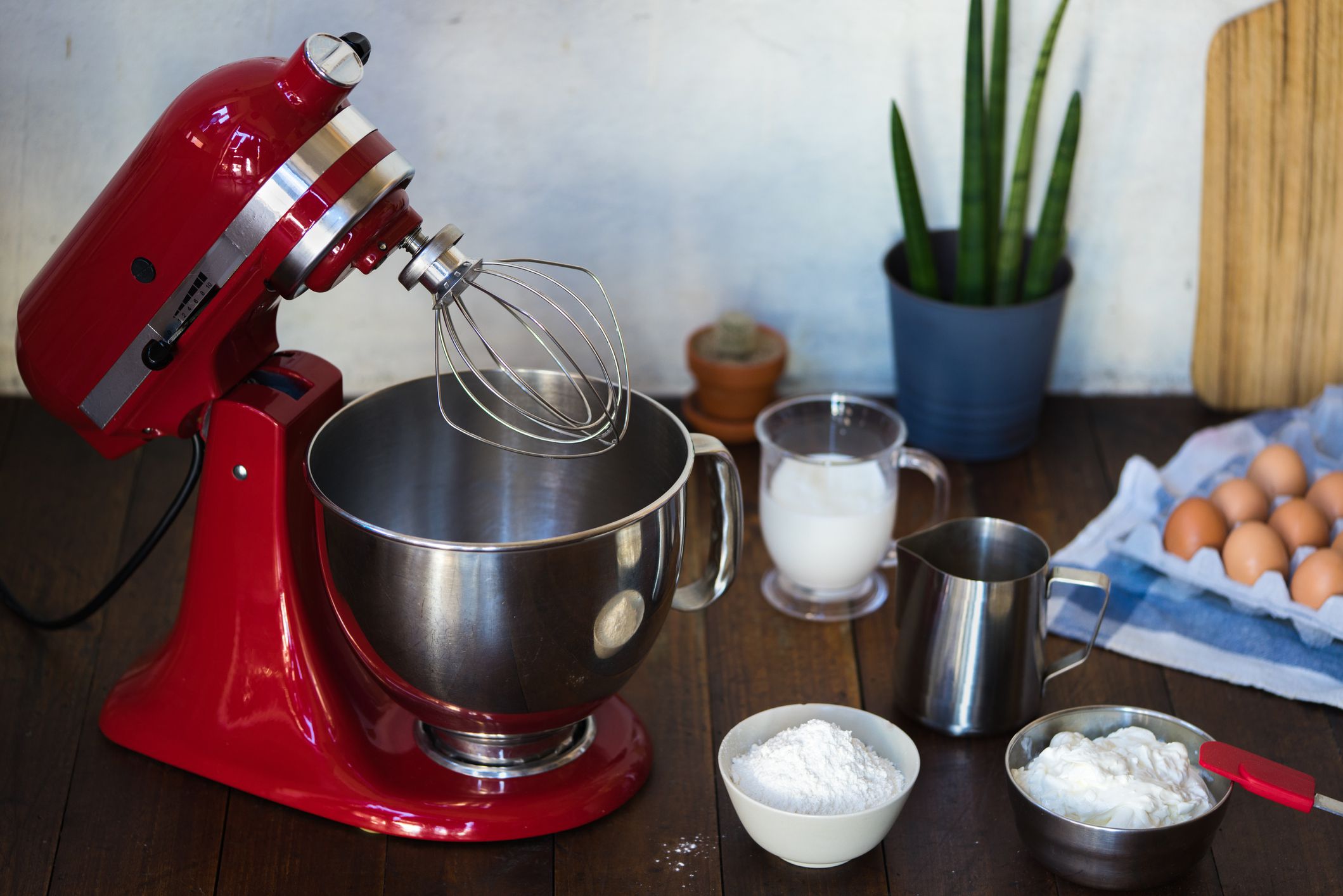


0 thoughts on “What Is A Good Juicer To Buy”